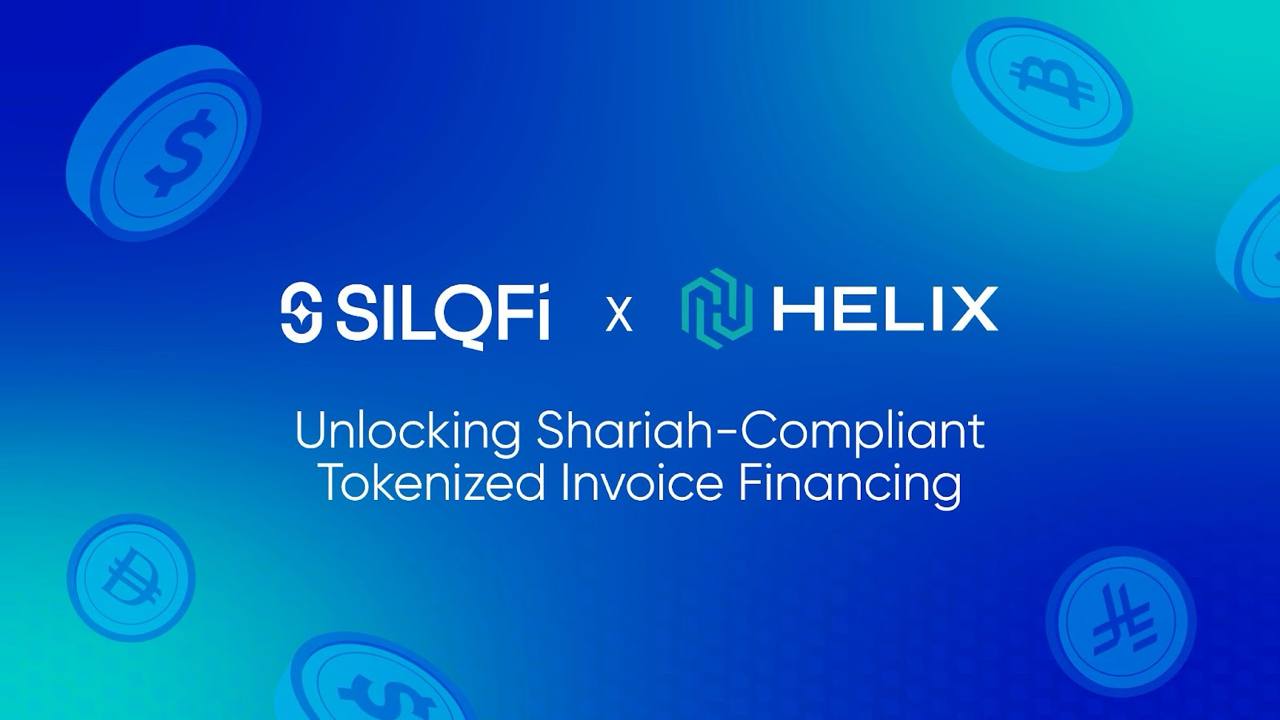UPDATE: SILQFi and Helix have just launched a groundbreaking initiative to provide shariah-compliant tokenized invoice financing, revolutionizing access to capital for small businesses in the Gulf region. Announced earlier today in Riyadh, Saudi Arabia, this partnership aims to bridge decentralized finance (DeFi) and embedded finance to address the staggering $5 trillion global financing gap for small and medium enterprises (SMEs).
This collaboration leverages Helix’s innovative tokenization protocol with SILQFi’s deep regional expertise, channeling stablecoin capital into the hands of local businesses. Currently, SMEs make up nearly 90% of all businesses yet receive a mere 9% of traditional bank loans, a critical mismatch that stifles growth and limits GDP contributions. This new model promises to unlock much-needed liquidity directly into business workflows, significantly advancing financial inclusion across the Gulf Cooperation Council (GCC).
WHY THIS MATTERS: The initiative not only offers an alternative financing route but also aims to inject over $250 billion into the regional economy, a substantial move for SMEs that have been historically underserved. By August 2025, tokenized real-world assets (RWAs) had already surpassed $25 billion, with stablecoins accounting for $267 billion in on-chain liquidity.
Helix has actively contributed to shaping the global tokenization dialogue, recently collaborating with major financial institutions to project that tokenization could unlock a $43 billion opportunity in Malaysia’s capital markets by 2030. The SILQFi–Helix partnership is set to bring this vision to life, directly connecting off-chain demand with on-chain capital for SMEs.
KEY DETAILS: The financing model is designed to be transparent, efficient, and compliant, ensuring that it integrates smoothly into existing business operations. SILQFi’s recent pilot program in Asia has showcased the potential of this approach, with strong repayment performance and significant business impacts validating the harmony between DeFi and embedded finance.
Mohammed Aldossary, CEO of SILQFi, emphasized the vibrant fintech landscape in the Gulf, stating, “With strong liquidity in the market, this model allows us to channel capital toward real-world SMEs through embedded financing, minimizing the funding gap for merchants while generating meaningful returns for investors.” This sentiment highlights the urgent need for innovative financial solutions in the region.
Backed by a robust $110 million investment from notable investors including PIF’s Sanabil Investments and Valar Ventures, SILQFi has already facilitated over $2 billion in SME transactions, financing more than 150,000 invoices across Asia and the Gulf. The focus now shifts to scaling these solutions further, where blockchain technology, artificial intelligence, and Islamic finance converge.
Jitendra Singh Jaitawat, Co-Founder and CEO of Helix, remarked, “Stablecoins are the backbone of programmable finance — secure, transparent, and efficient by design. Through this partnership, we are demonstrating how Helix’s RWAFi orchestration infrastructure translates that promise into real-world outcomes.”
NEXT STEPS: As this initiative gains momentum, stakeholders are urged to watch for developments in the tokenized financing space, particularly how these new financial infrastructures can reshape capital access for SMEs. The SILQFi and Helix partnership not only illustrates a bold step toward cohesive financial systems but also sets a precedent for future innovations in the region.
In a world where financial access remains uneven, this collaboration signals a transformative approach that could change the landscape for SMEs in the Gulf and beyond. Expect ongoing updates as SILQFi and Helix continue to refine their model and expand their reach.
